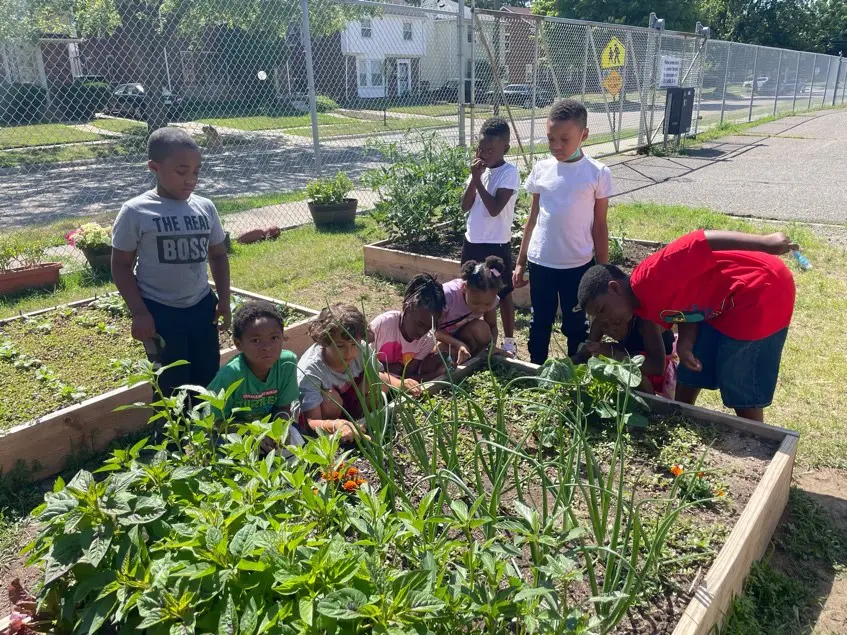Urban gardening movements are reshaping cities by turning vacant lots and underutilized spaces into thriving green havens, with Black-led initiatives at the forefront of this transformation. These movements not only address food insecurity but also foster community, empowerment, and environmental sustainability in urban areas. Through innovative approaches and a commitment to social justice, Black-led urban gardening efforts are providing fresh produce, educational opportunities, and hope to neighborhoods that have been historically marginalized. Here are four Black-led urban gardening movements that are transforming communities and paving the way for a more sustainable and equitable future.
1. Ron Finley’s “Gangsta Gardener” Movement

Ron Finley, known as the “Gangsta Gardener,” has become a global icon for urban gardening and community empowerment. Based in South Central Los Angeles, Finley’s movement began when he planted a garden on the strip of land between his home and the street, defying local ordinances. According to The Ron Finley Project, his mission is to transform urban food deserts into food sanctuaries by teaching communities how to grow their own food.
Through workshops, public speaking, and hands-on gardening projects, Finley empowers individuals to take control of their health, environment, and food systems. His initiative has inspired countless people to repurpose empty lots, medians, and neglected spaces into thriving gardens. Finley’s work demonstrates the power of urban gardening as a tool for self-sufficiency and neighborhood revitalization, proving that small changes can lead to monumental community impact.
2. Black Church Food Security Network

The Black Church Food Security Network (BCFSN) connects Black churches with local farmers and gardeners to create sustainable food systems in urban communities. Founded by Rev. Dr. Heber Brown III in Baltimore, Maryland, the network utilizes church-owned land to grow fresh produce and distribute it to congregants and neighbors. According to BCFSN’s website, the initiative addresses the systemic inequities that contribute to food deserts in predominantly Black neighborhoods.
BCFSN also facilitates partnerships between urban growers and Black-owned businesses to strengthen local economies. By leveraging the resources of Black churches, this movement not only increases access to healthy food but also fosters economic and social resilience within communities. Through education and advocacy, BCFSN empowers individuals to build self-sustaining food networks that honor the historical role of Black churches as hubs for social change.
3. Soul Fire Farm’s Urban Farming Outreach

Soul Fire Farm, based in Upstate New York, is a Black-led organization dedicated to addressing food apartheid and promoting sustainable agriculture. While the farm itself is located in a rural area, its urban farming outreach programs target cities nationwide, offering education, training, and resources to support Black and Brown communities in reclaiming food sovereignty. According to Soul Fire Farm, the organization’s mission includes providing fresh produce to underserved areas, teaching regenerative farming practices, and advocating for policy changes that address systemic racism in the food system.
Soul Fire Farm’s urban initiatives include workshops on container gardening, rooftop farming, and soil health, equipping urban residents with the tools needed to grow food in even the most limited spaces. The organization’s commitment to environmental stewardship and racial justice has made it a cornerstone of the urban gardening movement, inspiring communities across the nation to cultivate change.
4. Detroit Black Community Food Security Network

In Detroit, the Black Community Food Security Network (DBCFSN) is leading efforts to create a sustainable and equitable food system in the city. Founded by Malik Yakini, DBCFSN operates several urban gardening projects, including the D-Town Farm, a seven-acre site dedicated to growing organic produce and providing educational opportunities. According to DBCFSN’s website, the organization works to empower Detroit’s Black residents by addressing food insecurity and advocating for food justice.
DBCFSN also collaborates with schools, businesses, and local governments to create policies that support urban agriculture and community health. Through its programs, the network encourages self-reliance, promotes healthy eating, and builds a sense of community pride. DBCFSN’s success demonstrates how urban gardening can be a powerful tool for economic development, environmental sustainability, and social equity.
